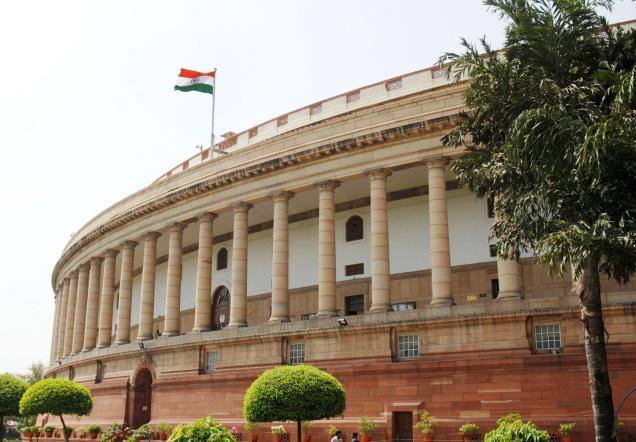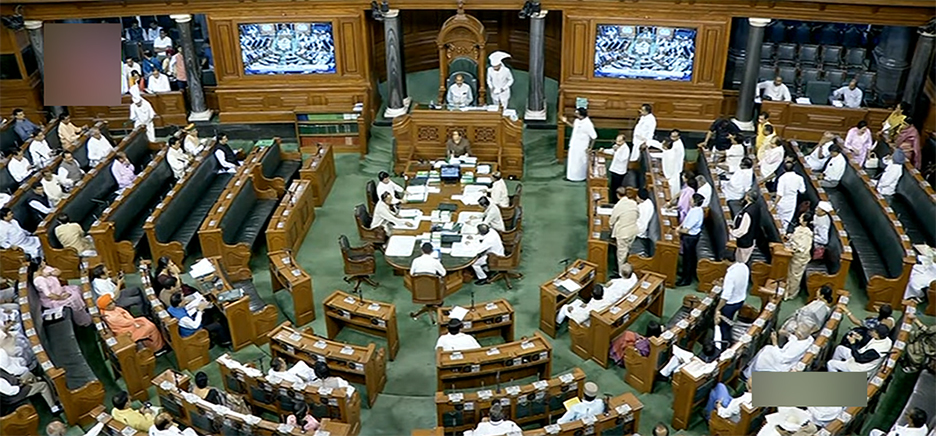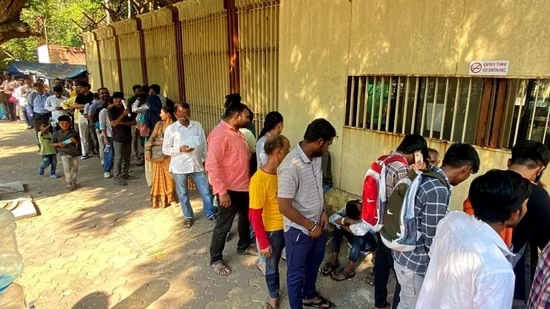India
Parliament approves the IIM bill, giving the President managerial authority.

Table of Contents
In a significant development that has stirred conversations across the nation, the Indian Parliament has given its seal of approval to the IIM Bill, a landmark legislation that bestows the President of India with enhanced managerial authority over the prestigious Indian Institutes of Management (IIMs). This move comes as part of a broader effort to bolster the quality of management education in the country and elevate these esteemed institutions to even greater heights. In this blog post, we will delve into the implications of the IIM Bill, its potential impact on the education landscape, and the reactions it has sparked among various stakeholders.
Empowering the President for Effective Governance
The IIM Bill is a testament to the Indian government’s commitment to fostering excellence in management education. With the President of India being granted managerial authority over the IIMs, the administration aims to streamline decision-making processes, improve coordination, and create a more unified framework for the functioning of these institutions. This step is anticipated to enhance accountability, transparency, and overall efficiency in the management of IIMs.
Key Features of the IIM Bill

President’s Role: The President of India will serve as the Visitor of all IIMs, conferring upon them an oversight role to ensure that the institutions adhere to the highest standards of academic quality and ethical conduct.
Executive Council Composition: The IIM Bill mandates the establishment of an Executive Council at each IIM, with the President of India having the authority to nominate prominent individuals from various sectors to these councils. This composition is expected to bring diverse perspectives to the decision-making process and contribute to a well-rounded governance structure.
Enhanced Autonomy: While the Bill empowers the President with managerial authority, it simultaneously seeks to uphold the autonomy and academic freedom of the IIMs. This balance is crucial to enable the institutes to continue fostering innovation and research.
Uniformity in Governance: By providing a consistent framework across all IIMs, the legislation aims to address disparities in governance structures that may have existed earlier. This uniformity is projected to strengthen the collective impact of these institutions on India’s education sector and economy.
Potential Impact and Benefits
The IIM Bill has the potential to bring about several positive changes in the Indian education landscape:
Quality Enhancement: With increased oversight, the IIMs are likely to maintain a high standard of education, faculty, and research, thereby enhancing the quality of management education in India.
Global Recognition: Improved governance can lead to higher international rankings for Indian management institutes, attracting students, faculty, and collaborations from around the world.
Innovation and Research: The legislation’s commitment to preserving academic autonomy can foster a culture of innovation, enabling IIMs to contribute valuable research and solutions to real-world challenges.
Stakeholder Engagement: By involving accomplished individuals from various sectors in the Executive Councils, the IIMs can establish stronger industry-academia connections, leading to more relevant and practical curricula.
Reactions and Contemplations
The IIM Bill has ignited a range of reactions from different quarters. While some applaud the move as a necessary step towards enhancing the quality of education, others have expressed concerns about potential interference in academic matters. The delicate balance between increased oversight and preserving academic freedom remains a point of contention that needs careful navigation.
The Parliament’s approval of the IIM Bill marks a pivotal moment in the evolution of management education in India. By granting the President of India enhanced managerial authority, the government aims to foster better governance, accountability, and coordination among the Indian Institutes of Management. The success of this legislation will hinge on striking a harmonious balance between oversight and academic freedom, ensuring that the IIMs continue to thrive as centers of excellence and innovation in the field of management education. As the implementation of the IIM Bill unfolds, the nation watches with anticipation to witness its impact on the future of education and India’s position on the global stage.
General News Platform – https://ihtlive.com/
Entertainment News Platforms – anyflix.in
Construction Infrastructure and Mining News Platform – https://cimreviews.com/
Podcast Platforms – https://anyfm.in/
India
Amit Shah will preside over a high-level Manipur meeting.

Monday night’s meeting to assess the security situation in Manipur will be facilitated by Union Home Minister Amit Shah. This is the first high-level gathering of its kind held by the central government since Prime Minister Narendra Modi’s National Democratic Alliance (NDA) was re-elected earlier this month.
Senior representatives from the federal government, state governments, including chief minister N Biren Singh, the army, and other security agencies are anticipated to attend the meeting at 4 p.m., according to people with knowledge of the development.
Manipur has seen fighting between the Kukis and Meiteis communities since May 3 of last year. The fighting has resulted in at least 225 deaths to far and the displacement of almost 50,000 people, the majority of whom are still living in relief shelters.
The previous few weeks have seen new acts of violence in the northeastern state, including the burning of a school facility close to Moreh and the discovery of the beheaded body of a missing individual.
In the Kangpokpi district last week, armed terrorists assaulted the vehicle of Manipur Chief Minister N Biren Singh’s enhanced security team, injuring a security officer and a civilian driver.
Dr. Mohan Bhagwat, the chief of the Rashtriya Swayamsevak Sangh (RSS), stated on June 10 that Manipur has been waiting for peace for a year and that this problem has to be given priority.
Bhagwat emphasised the importance of putting aside political hyperbole and concentrating on the issues confronting the country.
Dattatreya Hosabale, the general secretary of the RSS, called the current violence in Manipur “painful” and “worrisome.”
The Sangh, according to a statement, feels that the only way to solve any issue is “through mutual dialogue and expression of brotherhood in a peaceful atmosphere.”
In an attempt to mediate peace, Shah had earlier travelled to Manipur last month and convened nine talks with leaders of the Kuki and Meitei groups. Despite this, the violence has not decreased.
General News Platform – https://ihtlive.com/
Entertainment News Platforms – anyflix.in
Construction Infrastructure and Mining News Platform – https://cimreviews.com/
Podcast Platforms – https://anyfm.in/
India
Uttar Pradesh: PM Modi’s visit to the Kashi Vishwanath temple in Varanasi is well underway.

On Tuesday, Prime Minister Narendra Modi will travel to Varanasi, his home district in the Lok Sabha. This will be his first trip to the sacred city since taking office as the nation’s third prime minister.
At the historic Kashi Vishwanath temple, PM Modi is expected to engage with farmers and take part in Ganga Aarti.
What is currently known regarding Prime Minister Narendra Modi’s visit to Varanasi is as follows:
For 4.5 hours, Prime Minister Modi will be in Varanasi. At roughly 4 p.m., he will touch down at Babatpur’s Lal Bahadur Shastri International Airport.
Prior to releasing the 17th installment of the Samman Nidhi, which is intended to benefit 2,76,665 farmers in Kashi, PM Modi will attend a “Kisan Samelan.”
In order to commemorate the farmers in the area, PM Modi will meet with 21 of them at the Kisan Samelan and evaluate their products. BJP party officials are preparing for the visit.
The visit of Prime Minister Modi is a source of pride for the people of Varanasi, according to BJP president Dilip Patel. “We are all proud that Prime Minister Narendra Modi has taken the oath of office three times—once as the nation’s prime minister and once as a member of the Varanasi assembly.”
Following his meeting with the farmers, Prime Minister Modi is scheduled to attend the Ganga Aarti at Dashashwamedh Ghat at the Kashi Vishwanath temple.
Vishwa Bhushan Mishra, the CEO of the Kashi Vishwanath temple, stated in an interview that they have a process for the Prime Minister’s visit. PM Modi is anticipated to spend about twenty-five minutes inside the temple.
Ajay Rai, Modi’s previous opponent for the Varanasi seat, criticised him, claiming that Modi was displacing natives with Gujaratis by handing all employment to them. Regarding the purported dearth of factories and development in the city, he questioned Modi.
General News Platform – https://ihtlive.com/
Entertainment News Platforms – anyflix.in
Construction Infrastructure and Mining News Platform – https://cimreviews.com/
Podcast Platforms – https://anyfm.in/
India
Sunita Kejriwal is requested by the Delhi High Court to remove Arvind Kejriwal’s court footage from social media.

The wife of chief minister Arvind Kejriwal, Sunita Kejriwal, has been ordered by the Delhi High Court to remove a video of her husband speaking to a Delhi court from her social media accounts. The social media companies have also been ordered by the court to remove posts that contain links to the video.
In addition, the high court has sent notices to all parties involved in the PIL, which was filed by lawyer Vaibhav Singh, alleging that Kejriwal’s appearance before Delhi’s Rouse Avenue Court on March 28 violated the court’s regulations regarding video conferencing.
Among the five people requested to remove the social media posts is Sunita Kejriwal.
The court has set July 9 for the hearing.
On March 28, Arvind Kejriwal personally addressed Special Judge (PC Act) Kaveri Baweja after being brought before the court a second time after being arrested by the Enforcement Directorate in connection with the Delhi liquor policy case.
Sunita Kejriwal reposted the images after the audio and video recordings of the speech went viral on social media.
When films with comparable content are brought to their attention, the Delhi High Court ordered X, YouTube, Facebook, and Instagram to remove them.
The notice on the PIL filed by the Delhi-based attorney Vaibhav Singh was issued by a division bench made up of Justices Neena Bansal Krishna and Amit Sharma.
After he disregarded nine summonses from the Enforcement Directorate, Arvind Kejriwal was taken into custody on March 21 in relation to the excise policy fraud. Subsequently, the Delhi High Court affirmed the agency’s decision.
Later, Arvind Kejriwal petitioned the Supreme Court to overturn his arrest.
In order to enable Kejriwal to campaign for his Aam Aadmi Party during the Lok Sabha elections, the Supreme Court granted him temporary release in May for a period of 21 days.
On June 2, he turned himself in to the Tihar Jail officials per the Supreme Court’s directive.
The former bureaucrat Sunita Kejriwal had spent a great deal of time campaigning for the AAP during the Lok Sabha elections. But the party was unable to secure a single seat in the nation’s capital.
General News Platform – https://ihtlive.com/
Entertainment News Platforms – anyflix.in
Construction Infrastructure and Mining News Platform – https://cimreviews.com/
Podcast Platforms – https://anyfm.in/
-

 India11 months ago
India11 months agoThe afternoon briefing revealed that 97.26% of the ₹2000 notes were returned, and the Israeli Prime Minister committed to war goals.
-

 World4 months ago
World4 months agoMichigan splash pad attack: A couple was shot seven times in total while defending their two small daughters.
-

 Business2 years ago
Business2 years agoSrikanth Venkatachari is appointed as the new chief financial officer by Reliance Industries.
-

 Entertainment1 year ago
Entertainment1 year agoNew Season 8 The Walking Dead trailer flashes forward in time
-

 India1 year ago
India1 year agoPM Modi’s Three-Nation Tour Begins with a Traditional Welcome in Papua New Guinea
-

 India Hot Topics1 year ago
India Hot Topics1 year agoCenter ‘busts’ 8 YouTube channels for distributing false information.
-

 Business7 years ago
Business7 years agoThe 9 worst mistakes you can ever make at work
-

 Fashion7 years ago
Fashion7 years agoThese ’90s fashion trends are making a comeback in 2017







